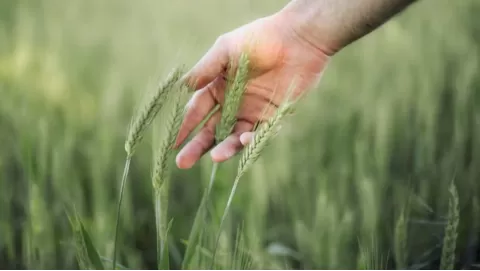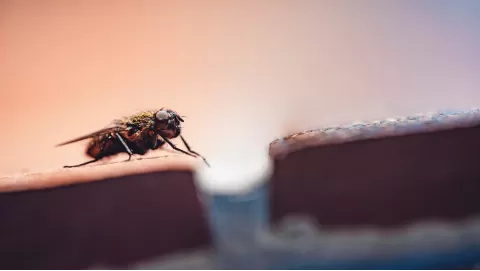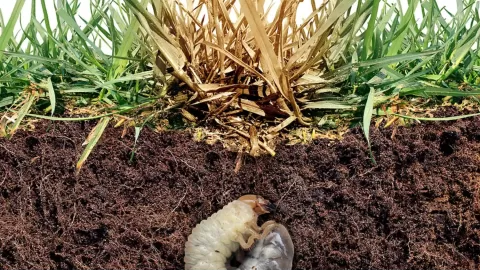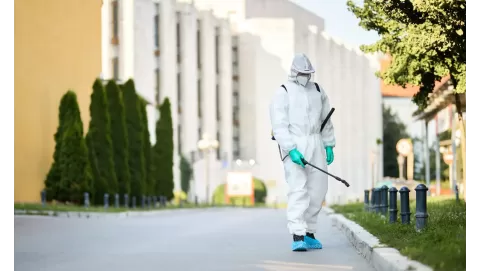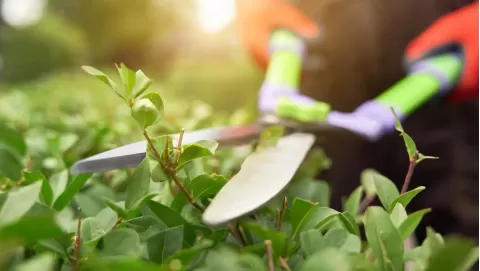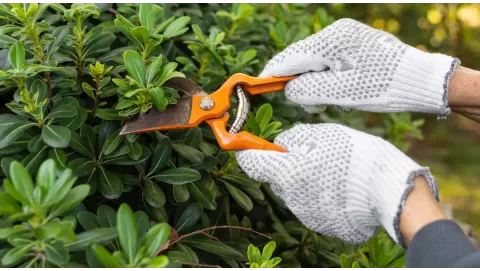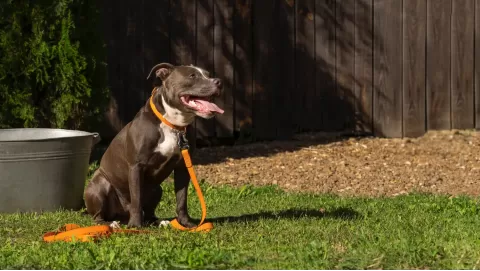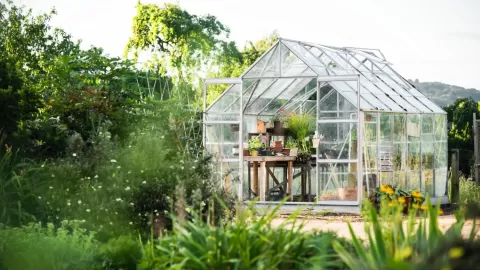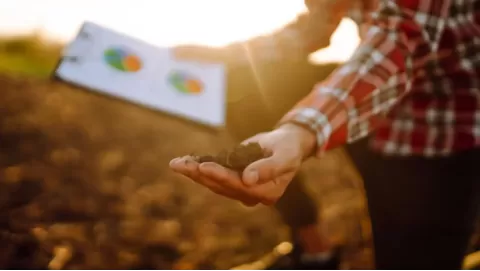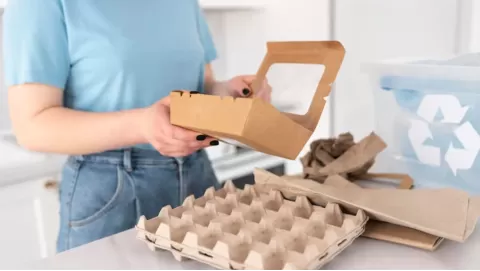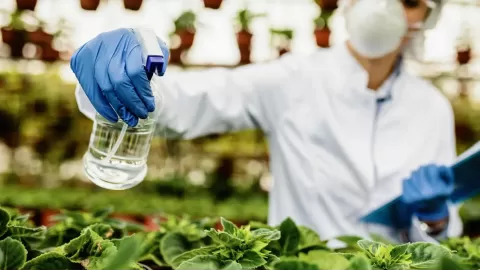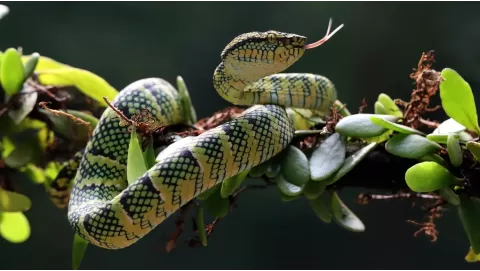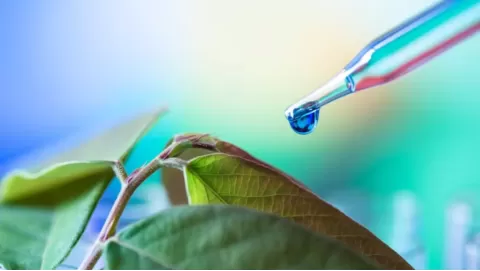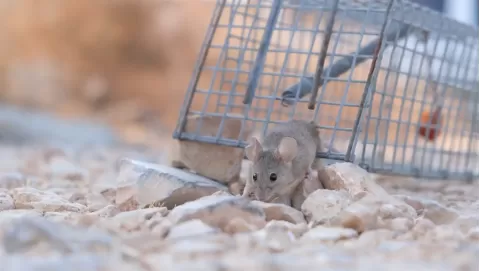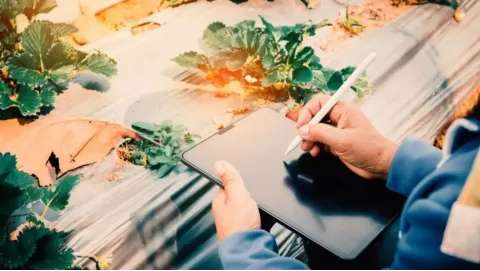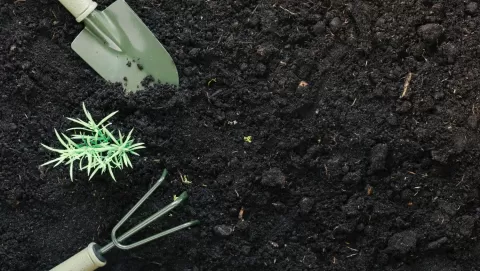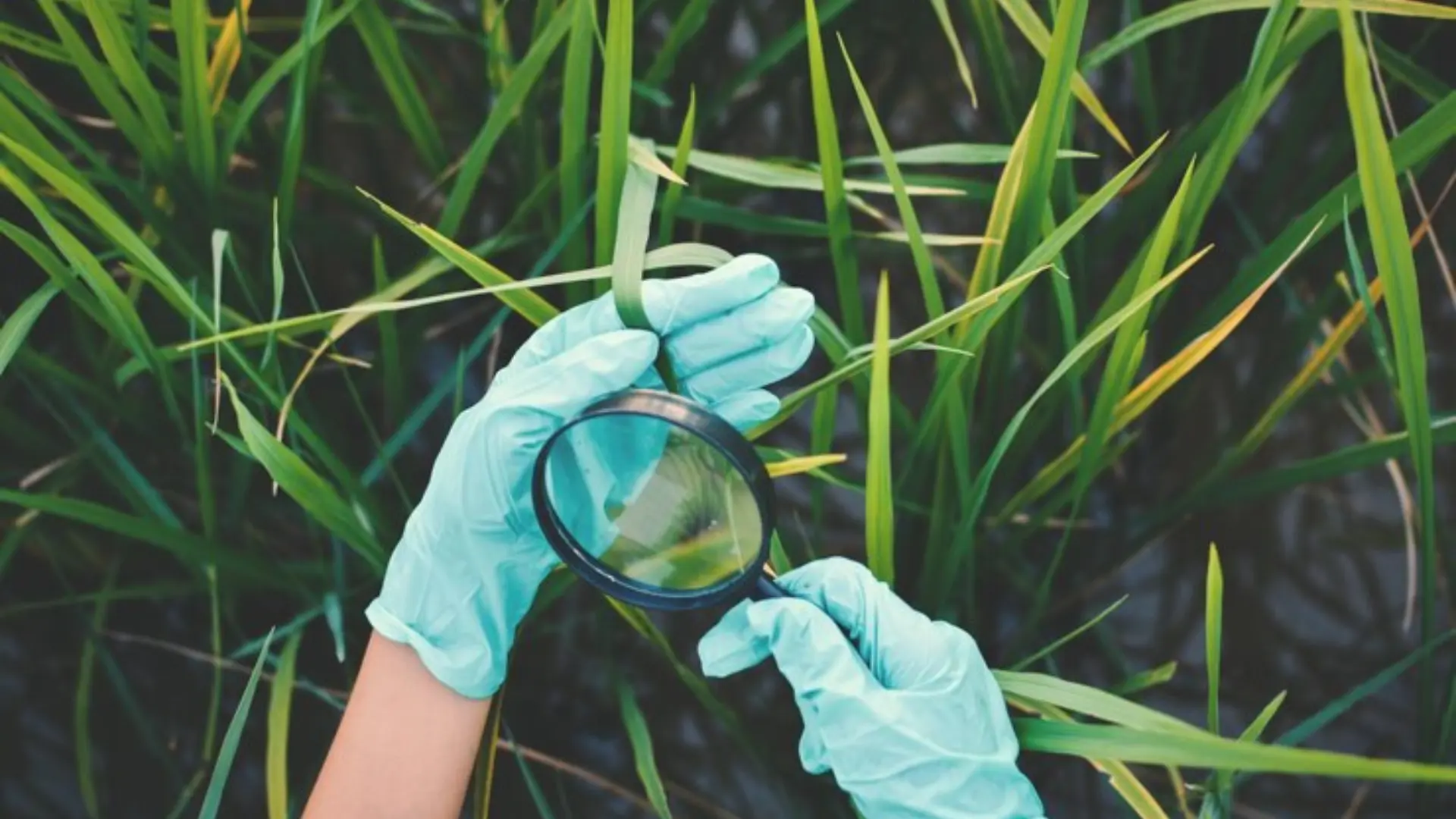
Using Nature for Pest Control: The Power of Biological Crop Protection
As the world shifts increasingly to focus on natural ways of farming that are more sustainable and environmentally safe, all eyes seem to be on natural pest control. Farmers worldwide are looking for new ways to protect their plants and avoid reliance on synthetic pesticides, which can have far-reaching negative effects on soil health, water quality, and biodiversity. In return, a new wave of farming innovators is changing how pests are controlled by tapping into the power of biology, data, and design.
- Biological Control: The practice of using beneficial insects, mites, fungi, and microorganisms to manage pests without synthetic chemicals.
- IPM Approach: Integrated Pest Management combines biological, mechanical, cultural, and chemical methods to keep pests below damaging levels.
- Bioline AgroSciences: Operates in over 30 countries, offering biological invertebrate pest control for vegetables, soft fruits, and ornamentals.
- PhycoTerra: A microalgae-based soil food that enhances microbial activity, boosts nutrient availability, and improves water retention.
- Grownetics: Uses automation and real-time data to optimize plant environments, reducing reliance on chemical pest control.
- Innovative Tool and Design: Provides custom-built equipment designed to support efficient and sustainable biocontrol applications.
Companies like Bioline AgroSciences, PhycoTerra, Grownetics, and Innovative Tool and Design are at the forefront. From predatory mites and microbial food to real-time climate control and custom-designed biocontrol equipment, their answers are paving a new, smarter, cleaner way. This article explores how these pioneers are reshaping pest suppression—not as a standalone tactic, but as a key element of sustainable agriculture.
Understanding Biological Pest Control
Biological crop protection involves using other living organisms to fight pests in agriculture, such as predatory insect species, beneficial mites, parasites, and microbial pathogens.
Classical biological control doesn’t present a threat to beneficial organisms and the reappearance of chemical residue on the food, as do its chemical enemies, synthetic pesticides. This precision is what makes it a potent weapon for farmers who favor sustainable, eco-friendly pest control.

Biological control agents (BCAs) are often used as a first line of defense. They naturally control pest outbreaks, thereby lessening the reliance on chemicals and rebuilding a more balanced ecosystem on the farm.
Another major benefit? Resistance management. Since BCAs work by natural predation or infection, resistance in pests is less likely to develop, as it is with repeated chemical applications.
In essence, biological protection puts nature back in control—minimizing damage, promoting crop health, and pushing agriculture in the direction of ecological principles.
The Role of Integrated Pest Management (IPM)
Biological pest control doesn’t exist in a vacuum — it’s most effective in the context of Integrated Pest Management (IPM).
IPM integrates cultural, mechanical, biological and chemical strategies to manage pest populations in the most sustainable and economical means possible. This isn’t about eradicating every last pest, but reducing them to low enough levels that they don’t harm the production of crops.
In such a system, bio-agents also serve a prophylactic/mitigative function. They are strategically deployed, predicated on pest pressure and crop stage, and backed by data-driven tools such as pest scouting and environmental monitoring.
Applied together with production practices such as crop rotation, habitat for beneficial insect pests, and decision support on chemical control, it becomes even more effective.
IPM fosters an ecosystem that’s more resilient, assisting farmers in decreasing inputs, lowering costs, and protecting crops while not undermining the health of the soil or the greater ecosystem.
Using Nature’s Allies in Modern Agriculture
Today’s farmers are re-imagining pest control — working with nature, not against it.
Useful insects, predatory mites, entomopathogenic fungi, and microbial inoculants are powerful friends. They are helping growers protect yields, enhance plant health, and meet growing market demand for pesticide-free produce.
These days, applying modern biological products is easier and more dependable than ever. Whether you grow in a wide open field, greenhouse, or high-tech indoor farm, there’s a naturally better solution for you.
Even more promising? These tools are being enabled by next-generation technology—smart climate control, data precision platforms—that allow precise timing, placement, and effectiveness.
In welcoming nature’s friends, modern agriculture isn’t just taking on pests — it's shaping a smarter, stronger food system.
Leading with Nature: Bioline AgroSciences’ Invertebrate Solutions
Bioline AgroSciences is one of the world's leading producers of invertebrate biological control products. They are experts in the biocontrol of insects, using natural predators, thereby offering a very sustainable solution for most crops.
- Global Reach: Over 30 countries, strong in Europe and North America.
- Target Crops: Focus on protected vegetables, ornamentals, soft fruits and berries.
- Commitment to Quality: They are proud to provide the highest quality plastic mulch products and customer service, ensuring that you keep your harvest yields high and produce high-quality crops.
Product Spotlight: Anderline With Bran-Vermiculite
Bioline’s new product, Anderline With Bran-Vermiculite, will revolutionize pest control for the farmer.
- Target Pests: Effective against spider mites, russet mites, and other destructive pest mites.
- Product Highlights:
- Cold & Heat Tolerant: Functions in temperatures ranging from 42°F to 104°F.
- Quick Life Cycle: Can develop from egg to egg in 10 days in ideal conditions.
- Ideal for IPM Programs: Fits well into integrated pest management and doesn't involve pesticides.
- Broad-Spectrum Impact: Effective on a wide range of mite species for lasting pest control.
- User-Friendly Packaging: It comes in a 1L tube, which is very convenient for application in greenhouses, tunnels, and open field crops.
Nourishing the Soil for Natural Pest Resistance
Healthy crops start from the ground up. When your soil is alive with microbes, your plants grow strong and resistant to pests.
But feeding the soil is about more than putting down fertilizer. It entails a habitat in which beneficial microbes flourish, taking up to natural alliances with plant roots and outcompeting deleterious pathogens.
This living soil acts as a bio-barrier. Microbes also help stimulate plant immune defense responses, promote root health, and release nutrients from decomposing organic matter that are easily taken up.
By focusing on soil health, growers are drawing on one of the oldest, most effective forms of pest resistance: the balancing act performed by nature. It’s a formative step in establishing a productive and sustainable growth system – one that bolsters crop health and decreases reliance on chemical defenses.
Soil Health as Pest Defense: The PhycoTerra Advantage
PhycoTerra is a proven natural food for your soil microbiome – nature’s own microalgae. This remarkable product feeds the life-enhancing microbes in your soil — bacteria and fungi, which have important jobs to do in supporting healthy crop growth.
Key Benefits of PhycoTerra Products:
- Improves Soil Quality: Improves soil condition while increasing soil structure and microbial activity.
- Boosts Water Retention: Up to 10% more water holding capacity.
- Optimizes Nutrient Availability: Improves NPK (Nitrogen, Phosphorus, Potassium) availability for crops.
- Supports Post-Harvest Management: Assists in managing residues following harvest.
- Increases Crop Yield and ROI: Strengthens plant health for greater productivity.
Using Technology to Prevent Pest Outbreaks
On today’s farms, avoiding pest outbreaks is about more than these old-school and old-fashioned methods, such as pesticides. Thanks to new technology, farmers have a powerful new way to protect their crops from pest pressures before they get out of hand. As smart sensors track environmental conditions and automated systems influence growing conditions, technology is transforming pest control (Pest control and overall plant health). Careful attention and control of environmental factors like water, food, and light allow you to naturally deter pests while plants remain healthy.
The adoption of technology not only enables proactive, preventive pest management by continuously monitoring and analyzing data, but also helps ensure that plants remain healthy and vibrant with minimal or no outside interference.
Data-Driven Pest Prevention: Grownetics and Smart Farming
As agriculture becomes increasingly data-driven, Grownetics is leading the way in leveraging smart agriculture to combat pest problems. Their environmentalization automation programs utilize highly sophisticated data analytics to perfect the optimal crop growth conditions. This is what enables growers to tailor their regional conditions for optimal plant health and thus help get rid of the threat that pests pose to their plants.
Precision Data for Healthier Crops
Grownetics' advanced technology systems monitor and analyze live sensor-based data from strategically located points within the growing ecosystem. By knowing their exact variables, such as humidity, temperature, and CO2 levels, growers can sculpt the perfect environment for their crops. And healthy plants are better able to ward off pests, and when they're not being stressed by not getting what they need from the environment, they are less likely to attract pests in the first place.
With Grownetics, farming is a science, optimizing crop output and reducing the risk of pest infestation.
Reducing Pest Pressures Through Ideal Environmental Conditions
Preventing pests from entering your homes is one of the best strategies with Grownetics' automated platforms, which allow for this by controlling humidity, temperature and airflow to the ideal point. Not only is the condition ideal for growing plants, but it is also not the friendliest environment for pests. The more you can control the growing environment, the less likely you are to have pest infestations.
Building the Tools of Tomorrow’s Biological Agriculture
The future of farming is in biological solutions that are in sync with nature, and developing the tools to underpin that transition is essential. With conventional farming practices transitioning to more sustainable options, there is increasing interest in biological inputs that include biofertilizers, biocontrol agents, and beneficial microbes. These products are intended to optimize crop health, enhance soil health and minimize reliance on synthetic chemicals.
Biological innovations are paving the way for a better, more ecologically sustainable future. From new iterations of the natural pesticide to an expanded soil enhancer, these are the tools that are revolutionizing agriculture, allowing farmers to go with nature rather than against it.
As technology progresses, these biological solutions are becoming increasingly accessible and effective. With precision farming tools, data-driven insights, and automated systems, farmers have the freedom to customize their biological approaches for their crops. This accuracy leads to enhanced pest species management, better plant health, and more efficient resource utilization.
With consumers increasingly seeking out organic and regenerative farming practices, the tools that people create today will help build a more robust and productive agricultural system tomorrow. Through entering into biological agriculture, farmers can contribute to the food security and the conservation of the environment for the next generation of human beings.
Innovative Tool and Design: Equipment Built for Biocontrol
Founded in 1939 as a traditional tool and die shop, Innovative Tool and Design has grown into a world-class metal stamping and fabrication company. From their humble beginnings to their global reach, they’ve remained committed to one mission: delivering precise, high-quality components across industries.
Throughout the years, they have grown into a one-stop source providing a variety of services to many markets that include automotive, aerospace, military, hardware, and medical Industries. They work closely with their customers so that they can help projects get off the ground from prototype to mass production by providing an integrated solution that seamlessly integrates with an engineering team to make your ideas a reality.
What They Offer
If you need custom parts on a short run, or for large-scale production, they have complete in-house capabilities, you can count on them for:
- Stamping & Forming: Punching, bending, forming, and deep draw operations
- Machining & Fabrication: CNC machining, welding, press brakes, turret presses, and assembly
- Design & Engineering Support: Utilizing tools like Mastercam, SolidWorks, CATIA, Unigraphics NX2
- Tool Room: Full service in-house tool and die repair and custom die building
- Quality Assurance: ISO/TS 16949 certified for consistent, global-quality standards
The Future of Crop Protection Is Biological
The change is coming — and it’s biological. And as growers abandon practices that rely heavily on chemicals, they’re also turning to nature-based solutions that complement, instead of harm, ecosystems.
From beneficial insects to microbial treatments, biologicals are demonstrating they can rival and even surpass synthetic solutions when placed with efficacy and backed by data.
The future of crop protection isn’t just greener — it’s smarter.
Combating Resistance and Chemical Overload
Pests are getting smarter — and harder to kill. Years of overuse of chemicals have bred hardier insects and fungi, which has made conventional pesticides less effective.
At the same time, red flags are being raised by consumers and regulators. There’s increasing demand for cleaner, safer food. Chemical thresholds are being made harder. The market is pivoting fast.

Biological control is a sustainable way forward. They home in on pests without clearing out the good guys or trashing the environment. And because they work by several mechanisms, resistance is much less likely to arise.
The era of chemical excess is coming to an end. The era of biological control and the balance of pests has come.
Creating Resilient Agricultural Ecosystems
A truly sustainable pest management strategy isn’t just about taking out threats — it’s about building strength into the system itself.
Growers can build self-regulating environments by blending biology, digital intelligence, and smart engineering. Over time, these ecosystems are more able to adjust, recover, and defend themselves.
Featured companies are where that comes in. Their technologies, software solutions, and biological products are the foundation of 21st-century IPM. Whether by automating predator releases or modeling ambient environmental conditions to forecast an outbreak, such innovators are rendering resilience quantifiable.
Biology, data, and technology are rewriting the rules of pest control together, growing healthier crops while restoring balance to the land.
Biological Control for Sustainable Indoor Pest Management
The use of augmentative biological control in indoor production systems is an important technique for controlling soil-dwelling insect pests and suppressing plant pathogens as a natural process. Natural enemy populations—predatory insects and mites, and parasitic wasps—can be nurtured, reducing the need for chemicals that disrupt plant health. Conservation biological control helps to promote and maintain these biological control agents on farms by preserving their habitat and reducing their exposure to pesticides.

General biological control paradigms have stored in them pest management programs like classical biological control programs, which are used in traditional agriculture but which can also serve as a template from which pest management programs can be customised for controlled environments. Development of a strategy for integrated management with the use of many biological control agents is important for the sustainability and resilience of pest management systems for a longer period.
FAQs
Can biological pest control completely replace chemical pesticides?
Often, yes — especially when paired with other environmentally friendly farming approaches such as crop rotation, habitat provision, and precision monitoring. Nevertheless, there might be circumstances where at least selective use of a narrow range of chemicals could assist in management, as a last resort in an integrated pest management (IPM) context.
Are natural enemies harmful to humans and animals?
Absolutely not. The vast majority of biological control agents are very specific to their target pests and do not affect people, pets, or beneficial wildlife. This is what makes them a safer alternative to conventional pesticides when it comes to application in the greenhouse or indoors.
How do I start using biological crop protection on my farm?
Start by evaluating your plants, conditions, and pest problems. Working with companies such as Bioline AgroSciences or PhycoTerra can offer the insight, products, and support that best fit your operation. Leveraging systems like Grownetics or custom gear from Innovative Tool and Design can enhance this approach.
Conclusion
The shift is happening—and it’s biological. As growers move away from chemical-heavy practices, they’re looking to nature-based solutions that cooperate with ecosystems, not against them. But biologicals, from beneficial bugs to microbial treatments, are showing they can go toe-to-toe with their synthetic counterparts, and in some cases, have a leg up when they are applied with precision and backed by data.
Companies such as Bioline AgroSciences are at the forefront with novel predator-based pest control solutions that integrate seamlessly with IPM regimes. PhycoTerra is feeding the farm’s microbiome with a food for friendly crops made from microalgae, increasing plant resilience from the soil and up. Grownetics is helping farmers to tune and monitor their environments for maximum plant health and pest resistance through data-driven automation. That’s why Innovative Tool and Design is developing the tools and machines that make this new biocontrol era more efficient and scalable.
Together, these partners are not only fighting back against resistance and killing less with less, they’re also building towards a cleaner and smarter future of farming, a future where agriculture is more sustainable for everyone. The next generation of pest control is here, and it begins by using the intelligence of nature.
Disclaimer: This material is for informational purposes only and should not be relied on for legal, medical, financial, or other professional advice.
Sources:
Cornell University - What is Biological Control?
The University of California - What is Integrated Pest Management (IPM)?

.jpg?1745620120491)






